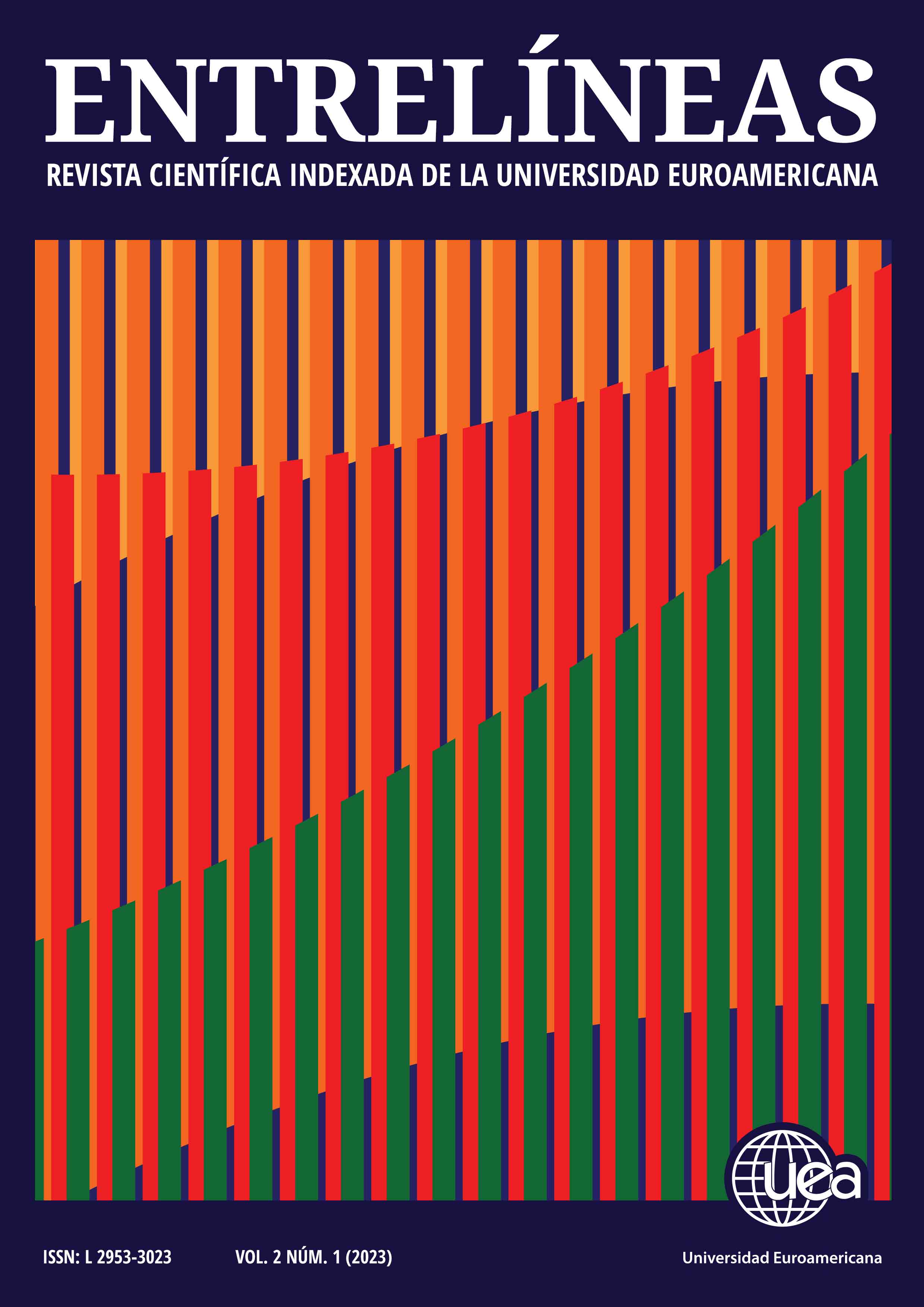Artificial intelligence as a transforming element of scientific research
DOI:
https://doi.org/10.56368/Entrelineas213Keywords:
Artificial Intelligence, ChatGPT, scientific researchAbstract
The constant evolution of humanity has been driven by the implementation of new technologies that meet the demands of modern societies. Artificial Intelligence (AI) is one of the clearest examples of the influence of technology in everyday life. This discipline deals with the creation of computers with computational capacity, similar to human intelligence, both in their design and in their ability to perform complex tasks. It is not only about processing data, but also about creating a context that promotes appropriate decision making, based on the situations that arise, hand in hand with continuous learning. AI is undoubtedly transforming the world, leading humanity towards a future where technology and intelligence merge towards the creation of solutions never seen before. In order to approach the subject, a bibliographic review was carried out within the framework of the interpretative, transcendental phenomenological paradigm supported by hermeneutics. The present written production had the intention to identify the contribution of AI in the optimization of scientific processes, orienting the approaches and precisions necessary for its investigation, from the consultation of bibliography. Among some emerging positions, in response to the intentions, it was specified that AI will continue to evolve, being an essential component in the solution of various social problems, as a transforming element of scientific research. Hence, it is essential to promote a change in the postulates in education, focusing on training outstanding citizens in the use and control of these disruptive technological tools.
Downloads
References
Alonso, J. y Quinde, M. (2023). ChatGPT: La creación automática de contenidos con Inteligencia Artificial y su impacto en la comunicación académica y educativa. Revista Desiderata, (22), 136-142. https://gredos.usal.es/bitstream/handle/10366/152505/MARLE%20ChatGPT.pdf?sequence=1
Bengio, Y. (218). Resistir a la monopolización de la investigación. El Correo de la UNESCO: Inteligencia Artificial, promesas y amenazas. Organización de las Naciones Unidas para la Educación, la Ciencia y la Cultura. https://unesdoc.unesco.org/ark:/48223/pf0000265211_spa
Burgos, L., Suárez, L., y Benzadón, M. (2023). Inteligencia Artificial ChatGPT y su utilidad en la investigación: el futuro ya está aquí. Revista Medicina Buenos Aires, 1-3. En: https://www.medicinabuenosaires.com/revistas/vol83-23/destacado/carta_8031.pdf
Gardner, H. (2001). Estructuras de la Mente. La Teoría de Las Inteligencias Múltiples. Fondo De Cultura Económica Ltda.
Heidegger, M. (2005). Ser y tiempo. [Traducción de Jorge Eduardo Rivera de la versión alemana de 1972]. Universitaria.
Leal, D. (2009). Perspectiva de la Investigación Social de Segundo Orden. Cinta de Moebio. 14: 200-225. En: https://www.moebio.uchile.cl/14/mejia.html#:~:text=La%20investigaci%C3%B3n%20social%20como%20operaci%C3%B3n,primer%20orden%22%20(32).
Leal, J. (2022). Ciencia de datos e inteligencia artificial: experiencia en una investigación cualitativa. Revista Educare, 26(2), 139-162. https://revistas.investigacion-upelipb.com/index.php/educare/article/view/1605/1655
McKeachie, W. y Doyle, C. (1973). Psicología. Fondo Educativo Interamericano.
Ponce, P. (2010). Inteligencia Artificial con aplicaciones a la ingeniería. Alfaomega Grupo Editor, S.A. de C.V.
Salazar, S. (2013). Del lenguaje en la Investigación. Revista Ciencias de la Educación, 23 (42), 97-109. En: http://servicio.bc.uc.edu.ve/educacion/revista/.
Saunders, M., Lewis, P., & Thornhill, A. (2019). Métodos de investigación para estudiantes de negocios (8a ed.). Pearson Education Limited.
Vandermause, R. (2011). Philosophical hermeneutic interviewing. International Journal of Qualitative Methods, 10(4), 367-377. DOI: https://doi.org/10.1177/160940691101000405
Vargas, G y Reeder, H. (2004). Ser y sentido. Hacia una fenomenología trascendental-hermenéutica. (2ªed.). San Pablo.
Vargas, X. (2011). ¿Cómo hacer investigación cualitativa? Una guía práctica para saber qué es la investigación general y cómo hacerla, con énfasis en las etapas de la investigación científica. ETXETA, SC.
Downloads
Published
Issue
Section
License

This work is licensed under a Creative Commons Attribution-NonCommercial 4.0 International License.
You are free to:
- Share — copy and redistribute the material in any medium or format
- Adapt — remix, transform, and build upon the material
- The licensor cannot revoke these freedoms as long as you follow the license terms.
Under the following terms:
- Attribution — You must give appropriate credit , provide a link to the license, and indicate if changes were made . You may do so in any reasonable manner, but not in any way that suggests the licensor endorses you or your use.
- NonCommercial — You may not use the material for commercial purposes .
- No additional restrictions — You may not apply legal terms or technological measures that legally restrict others from doing anything the license permits.









